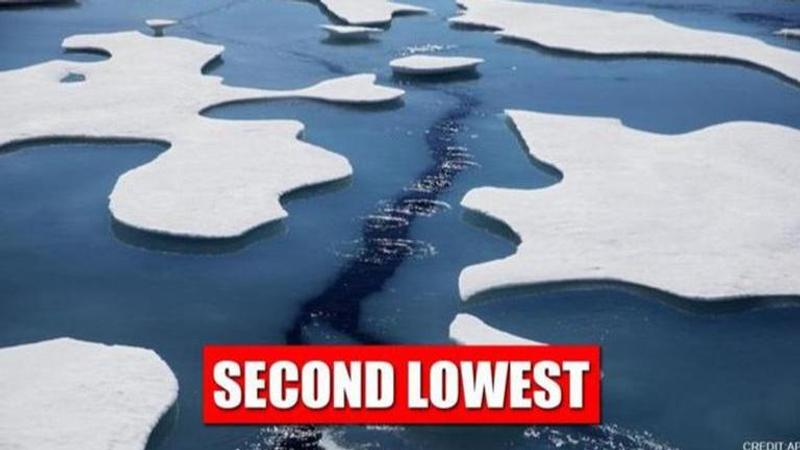Published 13:50 IST, September 22nd 2020
Arctic Ocean ice melts to its second lowest level on record this summer
United States scientists reported that last week, the Arctic ocean reached its summertime low of 1.4 million square miles.

Due to global warming, this summer, ice in the Arctic Ocean melted to its second lowest level on record. United States scientists reported that last week, the Arctic ocean reached its summertime low of 1.4 million square miles. According to the National Snow and Ice Data Center, this year’s ice melt comes after 2012, when the ice shrank to 1.3 million square miles.
Warming shrinks Arctic Ocean ice
According to the reports by AP, data center director Mark Serreze blamed Siberian heat wave and a natural Arctic climate phenomenon for the decline. He also called out that global warming from the burning of coal, oil and natural gas has also contributed to the melting of ice. He said, “Absolutely we’re seeing climate change at work because the warm summers become warmer and the cold winters aren’t as cold as they were”.
As per reports by AP, Pennsylvania State University climate scientist Michael Mann, wrote in an email, “What happens in the Arctic, as we say, doesn’t stay in the Arctic. We see the impact of Arctic warming in the form of unprecedented heat waves, floods, droughts, wildfire that we are now contending with here in the U.S. and around the rest of the world”. According to various studies, the melting of sea ice changes by altering the jet stream and various other waves that further move the weather system. According to Jennifer Francis of the Woodwell Climate Research Center in Woods Hole, melting of sea ice is connected to an increase in winter storminess in the Eastern United States.
In another shocking revelation, a group of British scientists have found that ‘staggering’ 28 trillion tonnes of ice has melted from the planet since 1994. In a review paper published in the journal Cryosphere Discussions, scientists from Leeds and Edinburgh universities and University College London studied the satellite surveys of glaciers, mountains, and ice sheets between the years 1994 and 2017 to document the impact of global warming. In the whopping loss of 28 trillion, as per the research, 7.6 trillion tonnes from the Arctic Sea, 6.5 trillion tonnes from Antarctic ice shelves, 6.2 trillion tonnes of mountain glaciers, 3.8 trillion tonnes of Greenland ice sheet, 2.5 trillion tonnes of Antarctic ice sheet and 0.9 trillion tonnes of mountain glaciers have reduced in their masses.
(Image Credits: AP)
Updated 13:50 IST, September 22nd 2020



